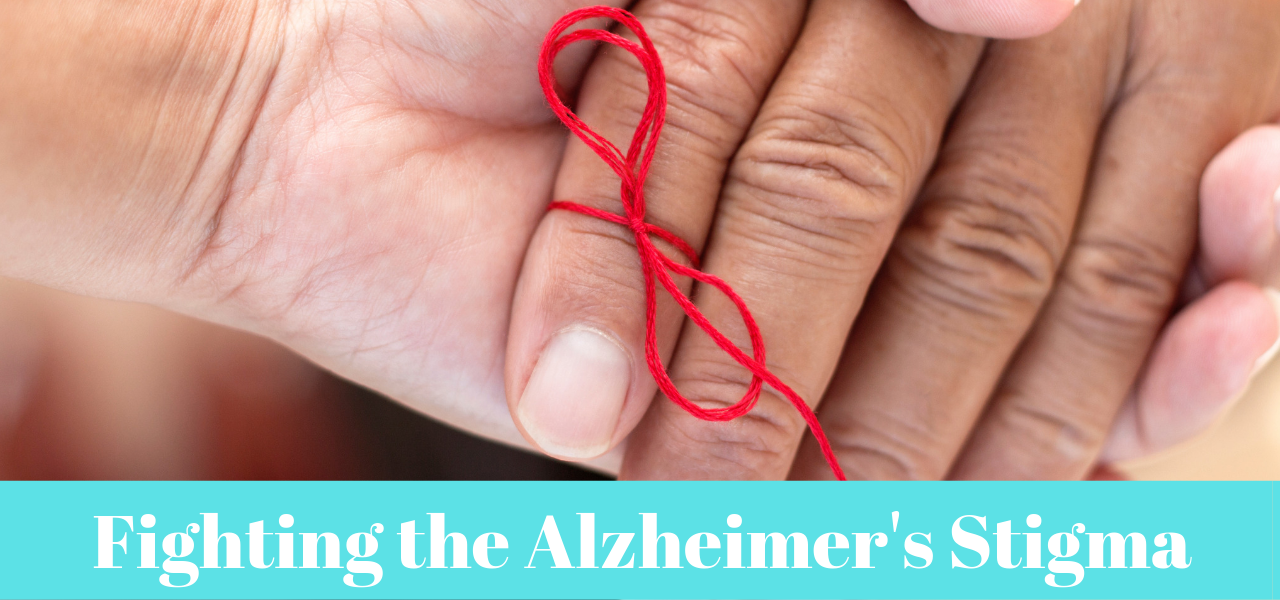
People who live with Alzheimer’s disease or a related form of dementia experience stigmas and stereotypes every day. Stigma is a condition which causes an individual to be labeled by others in an undesirable and rejected stereotype. More than just negative thoughts about a person with the disease, the stigma surrounding Alzheimer’s is a barrier in the search for a cure, having a real, tangible, and negative impact on Alzheimer’s treatment methods and research initiatives.
Learn more about why crushing the stigma of Alzheimer’s disease and dementia is crucial to finding a cure and how you can help fight stereotypes and stigmas associated with the condition.
The Negative Impact of the Alzheimer’s Stigma
In the 2012 World Alzheimer Report “Overcoming the Stigma of Dementia,” former Under Secretary General of the United Nations, founding Executive Director of UNAIDS, and Professor of Global Health at the London School of Hygiene & Tropical Medicine Peter Piot wrote, “Overcoming stigma is the first step to beating Alzheimer’s disease and dementia.”
The stigma that surrounds Alzheimer’s is due in a large part to a lack of public awareness and understanding of the disease. Studies have shown that the negative label associated with people who have Alzheimer’s or a related form of dementia prevent them from seeking early diagnosis, and sometimes any diagnosis at all. The stigma causes many to delay seeking necessary medical treatment when symptoms are present, often eliminating any options to participate in clinical trials or treatment options that may slow the progression of the disease. A delayed diagnosis can also decrease the quality of life for the person with the disease and keep them from developing a support system and making plans for their future care needs.
Experience Leisure Care Senior Living

The Ackerly at Reed's Crossing
Independent Living, Assisted Living, and Memory Care in Hillsboro, Oregon
There is also evidence that the stigma surrounding Alzheimer’s affects government funding for research. Alzheimer’s research is funded at significantly lower rates than other diseases, even though the cost of caring for Alzheimer’s is much higher than many other conditions.
3 Ways to Fight the Alzheimer’s Stigma
The best way to beat any stigma is through education. From raising understanding and awareness, there are less negative connotations associated with the disease, leading to an increase in societal empathy and a reduction in fear, ultimately leading to a reduced stigma. Alzheimer’s is no different. Here are five steps you can take to fight the Alzheimer’s stigma and encourage others living with the disease.
1. Be open about your own experiences
It is a lot easier to believe stereotypes and generalizations when you do not know anyone living with or caring for someone with the disease. However, over 5 million Americans are living with Alzheimer’s and chances are, everyone knows someone affected by dementia. Being honest and open about your own diagnosis or the diagnosis of a loved one breaks down barriers and makes the condition more personal and less scary.
2. Be factual
Stigmas result from fear and fear results from the unknown. There are several misconceptions about Alzheimer’s disease and many people do not understand the stages of dementia, its symptoms, the progressive nature of the disease, and how to care for someone who has it. Alzheimer’s is a difficult diagnosis for any family to endure but knowledge is power and sharing that knowledge will help reduce the stigma associated with it.
3. Find your support network and encourage others
No matter if you are a caregiver or someone in the early stages of dementia, a support group is crucial to mental health and well-being. Find others who can support you as you use your voice to speak against dementia. Together, stay engaged and involved in the community, showing the public that even though someone has Alzheimer’s they can be a vital part of the community and are key to the search for a cure, ending the epidemic for future generations.
Have you experienced negative stereotypes associated with dementia? How do you actively work to overcome this stigma? Share your personal experiences with us in the comments below.
Find a Leisure Care Community
Better with age, exceptional with us! Come and see how Leisure Care communities are helping seniors rediscover (and sometimes reinvent) themselves.







